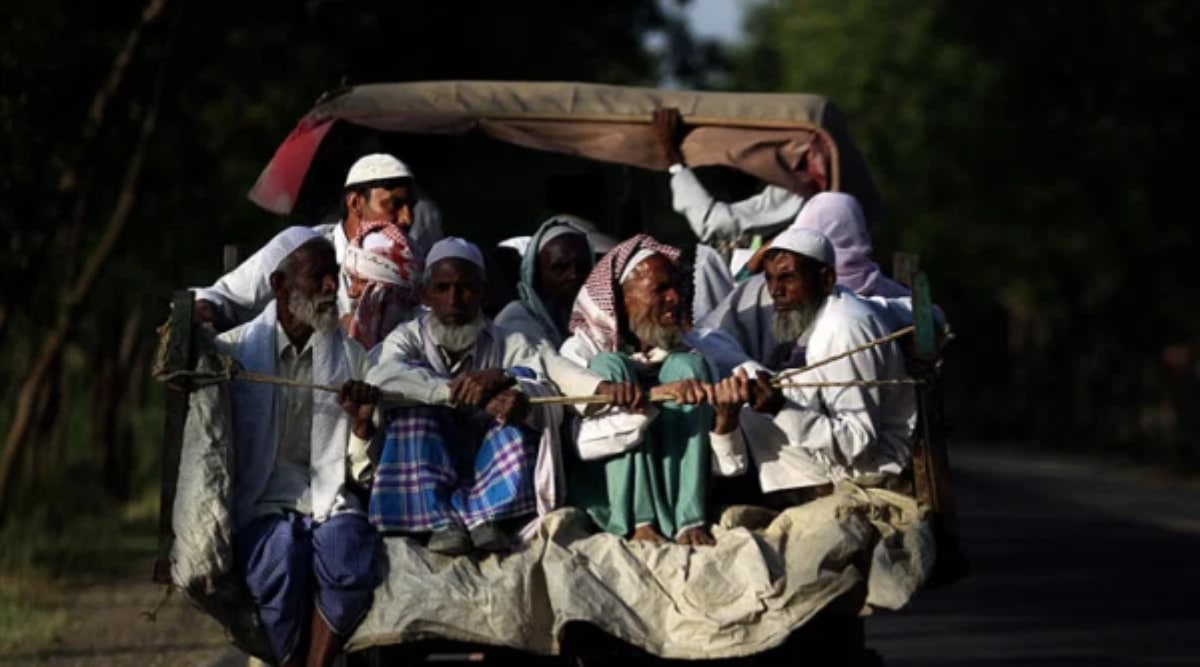April 4, 2021 5:03:59 pm
 It is often ignored that electoral politics and particularly elections provide space to the Muslim community, like others, to articulate socio-political and economic demands.
It is often ignored that electoral politics and particularly elections provide space to the Muslim community, like others, to articulate socio-political and economic demands. Written By Javed Iqbal Wani
Political discourse in India is predominantly electoral and the electoral discourse in India predominantly revolves around the question of “minority votes”, which essentially means Muslim votes. The Muslim predicament, no matter what, becomes one of the central themes during elections. In the ongoing elections in the state of Assam and West Bengal, the focus on minority constituency is worth noting. Muslim leaders and voters are presented as a monolithic group. The figure of the Muslim leader remains questionable whether they adopt a conservative or progressive agenda. The thrust of such a discourse remains that the figure of the Muslim is that of a saboteur — one who divides and weakens and lays astray the glorious march of the Indian (Hindu) nation.
This article challenges the common perception of the Muslim leader and Muslim voter as a saboteur and argues that the archaic framework to evaluate and understand both involves provocative and costly political choices. It shadows the nuances and ambivalent aspects of the Muslim political participation. By unleashing the trope of the Muslim saboteur, Hindu right-wing parties comfortably replenish a sense of moral superiority in the name of the Hindu nation. In this discourse, the majority of the political spectrum in India conveniently ignores important questions, puts little intellectual effort to engage with the community, and refuses to engage with issues that are central to Muslims.
It is often ignored that electoral politics and particularly elections provide space to the Muslim community, like others, to articulate socio-political and economic demands. It is a moment of mainstreaming their experience of citizenship while avoiding the perils of an anxiety that may militantly reject the mainstream. However, election campaigns and perception of Muslim community during elections also result in its marginalisation. It is important that political parties think afresh their strategy for the Muslim citizens or constituents.
Two contrasting examples from Assam and West Bengal point out that the nationalist and developmentalist discourse in India sustains itself through the image of the Muslim saboteur. In Assam, Badruddin Ajmal remains a controversial Muslim leader and in West Bengal Abbas Siddique’s entry has created a restlessness across political coalitions and collaborations. While Hindu religious leaders joining active politics seems acceptable, the yardstick for Muslim leaders appears to be different. Each step taken towards the Muslim community is termed as appeasement. Moreover, the burden of secularism is also placed exclusively on the Muslim community. A significant amount of blame is to be shared by the mainstream media, which barely provides voice to credible individuals from the community and instead thrives on sensational content, which further strengthens the stereotypes.
Ideally, elections provide a positive way to express political expectations and anxieties. They highlight the diversity of opinion within the community and also allow it to engage with the larger political discourse in the country or the state. At times, elections become a moment of community injury, provocation and confrontation, and on other occasions it becomes an opportunity for outward looking and progressive engagement with the “other”. Occasionally, there is a blending of religious fanaticism and political pragmatism, and at other times it is a combination of identity politics and a language of community rights.
The common ground on which citizens belonging to diverse religio-ethnic and caste identities can come together, such as issues of employment, welfare and social justice, is often conveniently relegated to the margins by the dominant media. What is required is a healthy dose of democratic encouragement to all the marginalised sections of the society so that opportunities of engagement become accessible. If one has to imagine a “New India”, then it must move away from the archaic tropes of late colonialism and the grief of Partition. “New India” is achievable once it realises the significance of the power of equality and cooperation across its diverse citizenry as a foundational template of political engagement. The ambition to make certain sections of the citizenry politically irrelevant will only create hurdles for a holistic national development.
The writer teaches at Ambedkar University Delhi
- The Indian Express website has been rated GREEN for its credibility and trustworthiness by Newsguard, a global service that rates news sources for their journalistic standards.

